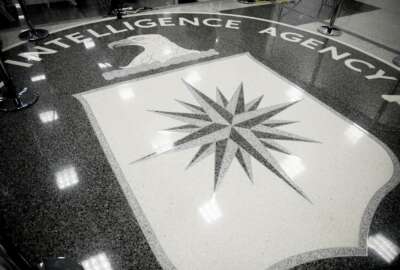
Intel community, awash in data, seeks in-demand talent to make sense of it
The intelligence community, tasked with analyzing data and more raw intelligence than ever before, is looking to build out its workforce to keep up with emerging...
The intelligence community, tasked with analyzing data and more raw intelligence than ever before, is looking to build out its workforce to keep up with emerging threats.
But intelligence agencies, competing with themselves and industry for prospective hires with in-demand technology skills, are rethinking how they can recruit next-generation employees.
George Barnes, the deputy director of the National Security Agency, said Friday that the agency is looking to make 2,000 new hires before the end of this year, and is setting an even higher goal for hiring next year.
Barnes, speaking Friday at the Intelligence and National Security Summit hosted by the Intelligence and National Security Alliance (INSA) and AFCEA, said NSA faces a “daunting challenge” trying to bring on so many new hires.
Among the challenges, Barnes said that it’s a challenge for NSA to bring in enough new hires that have in-demand cybersecurity and IT skills, and can also make it through a lengthy security clearance process.
“We have to make sure that our security apparatus evolves at the pace of need. The workforce of the future has many choices, and one of the things we’re confronting is the fact that people don’t want to wait to go through the clearance process. They don’t want to come into a SCIF [sensitive compartmented information facility] to work. They want to be educated after they get with us, not just before they get to us,” Barnes said. “And so we are wrestling with all those dynamics that the new workforce presents to us, and trying to be responsive and to actually reengineer the way we engage with our future.”
David Cohen, the deputy director of the Central Intelligence Agency, said the CIA is making the next generation of its workforce one of four ongoing priorities — the others being countering China, emerging technology and building partnerships in and out of government.
“We have been working extraordinarily hard to ensure that the work environment at the CIA is one where we are both able to attract people get them on board more quickly and retain them,” Cohen said.
While the CIA can recruit some new hires through its mission, Cohen said the agency can’t offer the same workplace flexibilities that some civilian federal agencies have been able to provide to employees as a recruiting and retention tool.
“We can’t offer the same sort of flexibility that the private sector can, in terms of working from home, working in your PJs. We don’t do that. You’ve got to come into work. But we’re looking for ways to ensure that the agency continues to be able to both attract and retain this workforce we’re going need in the future,” Cohen said.
Vice Adm. Frank Whitworth, the director of the National Geospatial-Intelligence Agency, said the agency needs to hire more data scientists, photogrammetric experts and experts in geospatial sciences to keep up with a deluge of imagery data.
“This comes down to having too much information, too little time, too few people,” Whitworth said.
That need for data skills will become even more essential once the Defense Department’s Undersecretary of Defense for Intelligence & Security transitions responsibility for Operation Maven over to NGA.
“That means the foundry of the algorithm, but also its application to the deluge of geospatial intelligence,” Whitworth said.
Christopher Scolese, the director of the National Reconnaissance Office, said his agency is also looking to hire the next generation of technology experts, from engineers to scientists, to keep up with a deluge of data.
“We’re amassing a lot of data. We’re collecting a lot of data in space. We’re operating larger constellations, We’re operating dissimilar systems. So we really need engineers and scientists and mathematicians that can operate on large volumes of data, make sense out of it,” Scolese said. “So we really need engineers and scientists that can go off and work that.”
Paul Abbate, the deputy director of the FBI, said the agency is also looking to overcome some of the challenges around hiring that are persistent across intelligence agencies.
“We’re all working hard to make sure that we reach out to and recruit the best talent, with the right skills that meet the criteria that we need to bring into our agencies and departments to do the work and carry the mission forward. We’re fortunate to have consistency, I think, in leadership, both at the highest level and within the workforce itself. It’s important to carry on the understanding, the experience in order to not repeat the mistakes of the past, take the lessons learned and apply them so we can work more efficiently to counter the threats we face going forward,” Abbate said.
Copyright © 2025 Federal News Network. All rights reserved. This website is not intended for users located within the European Economic Area.
Jory Heckman is a reporter at Federal News Network covering U.S. Postal Service, IRS, big data and technology issues.
Follow @jheckmanWFED
Related Stories




